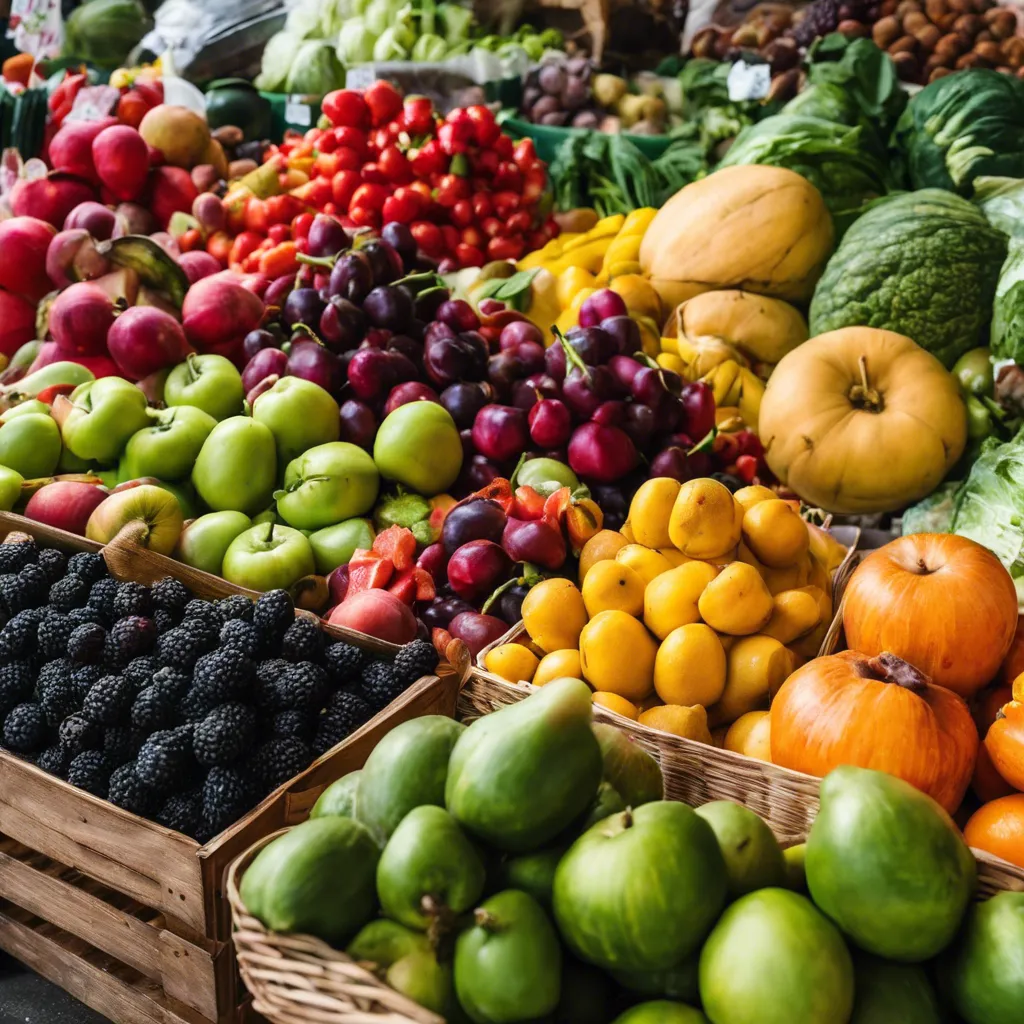Mindful Grocery Shopping for Natural Blood Sugar-Friendly Choices
Discover how to make mindful grocery shopping a breeze with our expert tips on choosing natural blood sugar-friendly foods.
Discover how to make mindful grocery shopping a breeze with our expert tips on choosing natural blood sugar-friendly foods.

In today's fast-paced world, it's easy to make unhealthy choices when it comes to grocery shopping. But what if there was a way to shop mindfully and make natural, blood sugar-friendly choices? In this article, we will explore how mindfulness can revolutionize the way you shop for groceries, and help you make healthier decisions that support stable blood sugar levels. Get ready to transform your shopping experience and prioritize your well-being.
Our food choices have a significant impact on our lives, including our blood sugar levels. The link between certain foods and blood sugar levels is crucial to understand, as it can affect our overall health and well-being. Let's explore this connection in more detail:
Carbohydrates are broken down into glucose during digestion, causing a rise in blood sugar levels. Foods high in simple carbohydrates, such as white bread and sugary drinks, result in a rapid spike in blood sugar. On the other hand, complex carbohydrates, like whole grains and legumes, promote a slower release of glucose, leading to more stable blood sugar levels.
Including sources of lean protein, like chicken and fish, in our meals can help regulate blood sugar levels. Protein slows down the digestion process, preventing a rapid increase in blood sugar after a meal. Additionally, protein-rich foods promote satiety, reducing the likelihood of overeating and maintaining balanced blood sugar levels.
Foods high in soluble fiber, such as fruits, vegetables, and whole grains, have a positive impact on blood sugar control. Soluble fiber slows down the absorption of glucose, preventing sudden spikes in blood sugar. Additionally, fiber-rich foods provide a feeling of fullness, aiding in weight management and overall blood sugar control.
Incorporating sources of healthy fats, such as avocados, nuts, and olive oil, into our diet can help regulate blood sugar levels. Healthy fats slow down the absorption of carbohydrates, resulting in a more gradual release of glucose into the bloodstream. They also promote feelings of satiety and improve insulin sensitivity, contributing to better blood sugar control.
Processed foods, high in refined sugars and unhealthy fats, can significantly disrupt blood sugar control. These foods are often low in fiber and may cause rapid spikes in blood sugar levels. Consuming excessive amounts of processed foods can lead to insulin resistance and an increased risk of type 2 diabetes.
It's important to note that the link between certain foods and blood sugar levels can vary from person to person. Factors such as genetics, underlying health conditions, and medication use can influence how different foods affect blood sugar. Consulting with a healthcare professional or registered dietitian is crucial in creating an individualized diet plan for optimal blood sugar control.
Understanding food labels and ingredients is crucial for mindful shopping. Reading labels helps you make informed choices about your food and its impact on your health. By checking ingredients, you can avoid harmful additives, allergens, and make better choices for special dietary needs. It also allows you to identify hidden sugars, sodium, and other unhealthy components. The ability to decipher food labels empowers you to prioritize whole, natural, and nutritious options, leading to improved overall well-being.
Including healthy carbohydrates in your diet can help promote stable blood sugar levels. Opt for whole grains, legumes, and fruits, which provide essential nutrients and fiber to support overall health.
To avoid processed foods that disrupt blood sugar levels, focus on whole, unprocessed foods like fruits, vegetables, lean proteins, and whole grains. Read food labels, limit sugary drinks, and prepare meals at home to have better control over ingredients and portion sizes.
Incorporating blood sugar-friendly ingredients into tasty meals is easier than you think. Try using whole grains, lean proteins, healthy fats, and plenty of vegetables to create delicious and satisfying dishes that won't spike your blood sugar levels.
In conclusion, mindful grocery shopping is a powerful tool for maintaining stable blood sugar levels and promoting overall health. By choosing natural, unprocessed foods and being aware of the glycemic index of different items, individuals can make conscious choices to support their blood sugar management goals. It is essential to prioritize fruits, vegetables, whole grains, lean proteins, and healthy fats, while minimizing or avoiding sugary snacks, processed foods, and high-glycemic options. By incorporating mindfulness into our grocery shopping routines, we can take control of our diet and ultimately improve our well-being and long-term health.
Mindful grocery shopping helps in making healthier food choices, which can regulate blood sugar levels naturally. It involves paying attention to labels, choosing low glycemic index foods, and avoiding processed or sugary products.
While grocery shopping for natural blood sugar control, it is important to focus on foods such as vegetables, fruits, whole grains, lean proteins, nuts, and seeds. These foods have a lower glycemic index and can help regulate blood sugar levels.
While grocery shopping for natural blood sugar-friendly choices, look for labels such as 'low glycemic index,' 'no added sugars,' 'organic,' and 'whole grain.' These labels indicate healthier options that can support blood sugar control.
Some tips for mindful grocery shopping include making a shopping list beforehand, focusing on whole foods, reading food labels carefully, selecting low glycemic index options, and avoiding impulse purchases.
When grocery shopping for natural blood sugar control, it is advisable to avoid processed foods, sugary snacks and beverages, refined grains, and foods high in saturated fats. These foods can cause spikes in blood sugar levels.